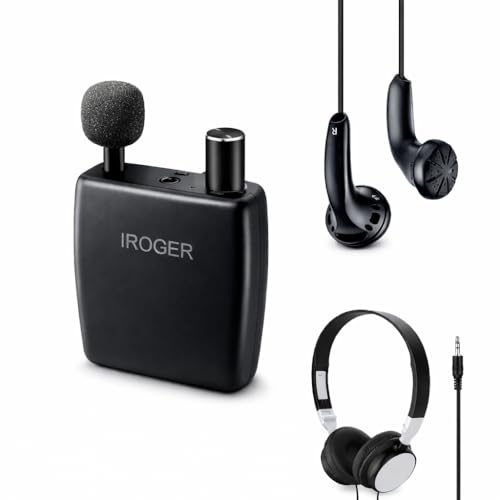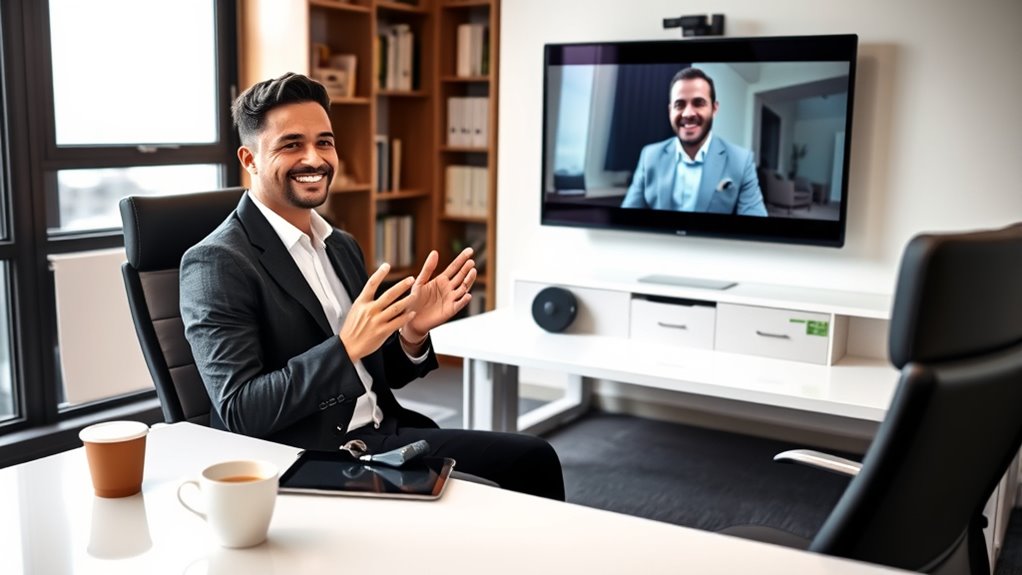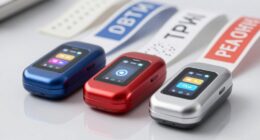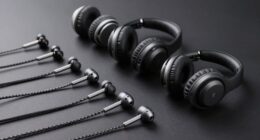To ace your interview as a deaf job seeker, prepare by practicing common questions with sign language resources or interpreters and choose professional attire. Use technology like real-time captioning or Video Relay Service to improve communication. Know your rights under the ADA and request accommodations confidently. Build confidence through mock interviews and highlight your strengths with visual storytelling. Stay informed on cultural factors and follow up professionally—continuing your efforts will reveal even more effective tips and strategies.
Key Takeaways
- Prepare communication aids, practice sign language, and confirm interpreter or captioning services before the interview.
- Use real-time captioning, Video Relay Service (VRS), and assistive technology to facilitate effective remote interviews.
- Know your legal rights under the ADA and confidently request reasonable accommodations to ensure accessibility.
- Practice mock interviews, craft visual responses, and develop strategies to boost confidence and presentation skills.
- Follow up with thank-you messages, reflect on performance, and use feedback to improve for future interviews.

IROGER Hearing Amplifier for Seniors, Personal Sound Amplifier, Smart Auto-Gain, Directional Microphone, Rechargeable with 120-Hour Battery, Headphones & Earbuds Included
Smart Auto-Gain Control – Enjoy crystal-clear sound at all times. iRoger automatically balances audio levels to enhance voices...
As an affiliate, we earn on qualifying purchases.
Preparing for Your Interview: Essential Tips for Deaf Candidates

Preparing for your interview is essential, especially as a deaf candidate. Start by exploring sign language resources to build your confidence and guarantee smooth communication. Practice common interview questions using these tools or with a trusted interpreter. When choosing interview attire, aim for professional, neat, and comfortable clothing that reflects the company’s culture. Dress in a way that makes you feel confident and prepared. Consider bringing a written copy of your resume and any necessary communication aids. Confirm the interview details ahead of time, including whether an interpreter will be available. Being well-prepared shows professionalism and helps reduce anxiety. Additionally, understanding automated systems and AI screening tools used in many hiring processes can help you prepare for digital assessments. With the right resources and attire, you’ll be ready to make a strong impression and navigate your interview with confidence.

WallarGe Rechargeable Neckband Hearing Amplifier for Conversation or TV Watching, Digital Hearing Amplifier for Seniors Adults with Volume Control, Bluetooth Earphones for Seniors
PERSONAL HEARING AMPLIFIER - With the built- in mic collecting the sounds around you, get the ultimate sound...
As an affiliate, we earn on qualifying purchases.
Leveraging Technology to Enhance Communication During Interviews

Technology offers powerful tools that can substantially improve communication during interviews for deaf candidates. Real-time captioning provides instant text of spoken words, allowing you to follow the conversation effortlessly. Many video conferencing platforms now support live captioning, making remote interviews more accessible. Additionally, Video Relay Service (VRS) enables you to communicate through a sign language interpreter via video calls, ensuring clear and natural dialogue. Using these tools helps reduce misunderstandings and builds confidence. Before your interview, test your technology setup to make certain everything runs smoothly. Inform the interviewer in advance about your preferred accommodations, such as real-time captioning or VRS. Leveraging these technological solutions empowers you to engage more effectively and showcase your skills confidently. Understanding contrast ratio can also help you choose projectors that deliver clearer images during presentations. Being familiar with assistive technology options can further personalize your communication experience and enhance your overall interview success. Exploring communication accessibility tools can provide additional ways to facilitate effective dialogue during your interview.

Personal Sound Amplifier PSAP the Latest Gen Model HA9000, Rechargeable Hearing Aid Device Hearing Amplifier with Headphones, Detachable Microphone, Type-C Charging for Seniors, Adults, Elderly
Advanced Sound Amplification and Noise-Canceling: The Latest Gen HA9000 personal sound amplifier features Auto-Gain Control for clearest amplification,...
As an affiliate, we earn on qualifying purchases.
Practicing Effective Communication Strategies for Success

To succeed in your interview, practicing effective communication strategies is essential. Focus on improving your sign language fluency and utilizing visual communication techniques. Practice clear, confident signing to guarantee your message is understood. Use visual aids or gestures to emphasize key points. Role-play interview scenarios with a friend or mentor to build comfort and fluency. Consider creating a cheat sheet with important vocabulary or responses. Additionally, staying informed about Halloween celebrations around the world can help you connect with interviewers from diverse backgrounds and demonstrate cultural awareness. Incorporating mindful decluttering strategies into your preparation can also help you organize your materials and reduce stress during the interview process. Engaging in dynamic communication exercises for couples can enhance your expressive skills and confidence in conveying your thoughts effectively. Regular practice with airless paint sprayers can improve your understanding of technical equipment, which may be beneficial when discussing your skills and adaptability during interviews. Moreover, familiarizing yourself with vetted Halloween product reviews can spark engaging conversations about creativity and planning for holiday events.

Joanbro Hearing-Amplifiers for Seniors, Sound-Amplifier with Adjustable Volume & Tone Control, Handheld Pocket Size Hearing Assisted Devices with Replaceable Microphone, Headphones, Earbuds, Batteries
Clearer Hearing Anytime, Anywhere: Boosts voice up to 50dB- perfect for TV watching, daily conversations, or outdoor activities....
As an affiliate, we earn on qualifying purchases.
Understanding Your Rights and Accessibility Accommodations

Understanding your rights and available accessibility accommodations is essential for advocating effectively during your job search. Knowing disclosure policies helps you decide when and how to share your deafness with potential employers, ensuring transparency while protecting your privacy. Legal protections, such as the Americans with Disabilities Act (ADA), safeguard your right to equal opportunity and reasonable accommodations. Familiarize yourself with these legal protections so you can confidently request the necessary support, like sign language interpreters or captioned phone services. It’s important to understand how to communicate your needs and rights without fear of discrimination. Being informed empowers you to navigate interviews assertively, ensuring your deafness is accommodated appropriately and that your rights are upheld throughout the hiring process. Additionally, embracing creative practice can bolster your confidence and problem-solving skills, which are valuable during interviews and workplace interactions. Recognizing specialized accommodations, such as visual alert systems or assistive technology, can further enhance your workplace experience and communication effectiveness. Understanding accessibility technologies can help you identify tools that improve daily communication and integration in the workplace. Moreover, staying informed about Glycolic Acid products and their benefits can inspire confidence in self-care routines that support overall well-being, which is essential for navigating professional environments effectively.
Building Confidence and Presenting Your Skills Effectively

Practicing with mock interviews helps you gain confidence and refine your responses. Be sure to highlight your unique strengths and experiences to stand out. When you present yourself clearly and confidently, you make a strong impression on potential employers. Incorporating effective blemish treatment strategies, such as using hydrocolloid patches, can also boost your self-esteem during interviews. Additionally, understanding essential oils for skin and confidence can provide calming and skin-soothing benefits that help you feel more prepared and relaxed. Being aware of regional legal resources and local support can also help you navigate any AI-powered virtual reality challenges during your job search. Engaging with voiceover industry trends can further inform your approach and increase your chances of success.
Practice With Mock Interviews
Engaging in mock interviews is a powerful way to boost your confidence and showcase your skills effectively. Role playing exercises allow you to simulate real interview scenarios, helping you practice your responses and improve your comfort level. During these sessions, you can focus on articulating your strengths and addressing potential questions. Seek peer feedback to gain valuable insights into your delivery, body language, and clarity. Peers can highlight areas for improvement and reinforce your strengths, making your preparation more targeted. Repeating mock interviews regularly helps you become more familiar with the process, reduce anxiety, and refine your presentation. Additionally, understanding family dynamics and influences can provide valuable context for discussing your background and experiences during interviews. Recognizing social and cultural factors can also help you craft more authentic responses and connect better with interviewers. Exploring the artistic significance of butter can serve as a metaphor for adaptability and creativity, which are valuable qualities in an interview setting. Being aware of nutrient-rich ingredients and their benefits can also help you highlight your knowledge of health-related topics if relevant to your background. Incorporating insights from predictive modeling in educational data mining can help you anticipate common interview questions based on data-driven trends, making your responses more strategic. Ultimately, this practice builds your confidence and ensures you’re ready to impress during your actual interview.
Highlight Unique Strengths
Building on your mock interview practice, it’s time to focus on highlighting your unique strengths. Show how your skills make you the ideal candidate through visual storytelling—using clear, compelling examples that demonstrate your abilities. Emphasize your adaptive networking skills, highlighting how you connect effectively in various environments. To organize your ideas, consider this table:
| Strength | Example | Impact |
|---|---|---|
| Visual storytelling | Sharing a project via video | Engages interviewers visually |
| Adaptive networking | Connecting at events in person | Builds relationships quickly |
| Problem-solving | Resolving technical issues | Demonstrates resilience |
This approach boosts your confidence and clearly presents your skills, making a memorable impression. Incorporating sound healing science principles, such as using calming visuals or background music during your presentation, can also help to create a more engaging and relaxed interview environment. Additionally, understanding city dynamics and researching local opportunities can help you tailor your responses and showcase your awareness of the broader context. Recognizing the importance of ethical hacking principles can also enhance your ability to demonstrate security awareness, even in non-technical interviews. Exploring somatic therapy techniques like breathwork or body awareness exercises may also help you manage interview anxiety and stay grounded during your responses.
Following Up and Reflecting Post-Interview

After your interview, taking the time to follow up and reflect can considerably boost your chances of success. Use feedback strategies to craft a thoughtful thank-you message that expresses appreciation and reiterates your interest. Keep your message professional and respectful, demonstrating good professional etiquette. This follow-up shows your enthusiasm and helps reinforce a positive impression. Reflect on how the interview went—note what went well and identify areas for improvement. Consider any questions you found challenging or missed opportunities to highlight your skills. This reflection prepares you for future interviews and helps you refine your approach. By combining timely follow-up with honest self-assessment, you demonstrate professionalism and a genuine commitment to the role.
Frequently Asked Questions
How Can I Identify Suitable Employers Committed to Accessibility?
You can identify suitable employers by researching their company policies on accessibility and inclusion. Look for organizations that openly promote diversity and have clear policies supporting accessibility. Additionally, check if they conduct regular accessibility audits, showing their commitment to maintaining an inclusive environment. You can also review their website, social media, and employee testimonials to gauge their dedication to accessibility, ensuring they’re a good fit for your needs.
What Are Common Misconceptions About Deaf Candidates During Interviews?
Many people wrongly assume deaf candidates lack sign language fluency, which isn’t true for everyone. They also believe that interview accommodations are unnecessary or burdensome, but these adjustments help you showcase your skills effectively. You should confidently clarify your needs beforehand, knowing that accessible interview accommodations not only support your communication but also demonstrate your potential to contribute meaningfully. Don’t let misconceptions hold you back from highlighting your true abilities.
How Do I Disclose My Deafness Professionally Without Stigma?
Think of your disclosure as a bridge you build with honesty and confidence. Use clear disclosure strategies to share your deafness professionally, emphasizing your skills and adaptability. Approach the conversation as a part of your professional communication toolkit, framing it positively. This openness fosters understanding and respect, ensuring your abilities shine through while creating an inclusive environment from the start.
What Are Innovative Assistive Technologies I Haven’t Considered?
You might not have considered how sign language apps and real-time captioning can boost your communication. Sign language apps enable you to connect quickly with interpreters or learn on the go, while real-time captioning provides instant subtitles during conversations or interviews. These innovative assistive technologies help you showcase your skills confidently, reduce communication barriers, and demonstrate your adaptability, making a positive impression on potential employers.
How Can I Network Effectively as a Deaf Job Seeker?
Think of networking as a friendly dance—smooth steps matter. To do it effectively, leverage sign language interpretation and accessible networking events. Connect on social media platforms like LinkedIn, ensuring your profile highlights your skills and communication preferences. Attend industry meetups that offer accommodations, and don’t hesitate to ask for sign language interpretation when needed. Building genuine relationships through clear, accessible communication boosts your confidence and opens doors.
Conclusion
With the right preparation, technology, and confidence, you can conquer any interview like a superhero wielding the power to break barriers! Remember, your skills and determination are unstoppable forces that no obstacle can hold back. So step into that interview room boldly, knowing you’re equipped to shine brighter than the brightest star. No challenge is too big when you believe in yourself—because your success story is waiting to be written!










